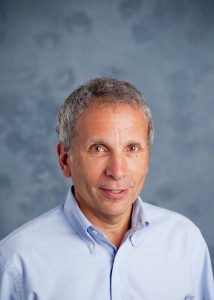
07 Aug Live Longer: Why the Telluride Longevity Institute & the Retreat
The Telluride Ski Resort and The Peaks Resort & Spa in Mountain Village are hosting week-long wellness intensives titled Live Longer Retreat. The Big Idea is to support your annual resolution to get really healthy and therefore live longer well. More than half the year is in the rear view mirror. What progress have you made?
Using an evidence-based, scientific approach to health and longevity and featuring an experienced staff of medical professionals, personal trainers, Pilates and yoga instructors, dietitians, and chefs, all focused on your unique wellness profile, each Live Longer Retreat is one-of-kind in the U.S.
The intensives, limited to only 10 – 15 participants, include personal consultations, hiking, spinning, yoga, Pilates, talks and demonstrations related to nutrition, cooking classes, and more. Dates this debut summer/fall season are August 19 – August 25 and September 27 – September 30.
The program is led by Dr. Alan Safdi, a world-renowned internist and gastroenterologist with encyclopedic knowledge of mind-body wellness and preventative medicine. Dr. Safdi also has a gift for delivering evidence-based medical findings for healthier living in easily digestible sound bytes.
In the run-up to the retreats, Dr. Safdi is posting regular updates on Telluride Inside… and Out based on the latest, closely vetted research about subjects in the field of health, wellness and longevity.
This week, Dr. Safdi explains why he established the Telluride Longevity Institute and why the retreats.
Feel free to sign up now to participate in a Live Longer Retreat – or call 1-877-448-5416 for further information.

One of the first questions people want to know is why did we started these intensive retreats? Why is it so important for the general public as well as physicians to get a good foundation in health and wellness?
After 40 years as a doctor and traveling to numerous countries to observe their healthcare systems, I came to the sad conclusion the US is hyper-focused on the treatment of illness, rather than on disease prevention and quality of life.
I have lectured on the topic of health, wellness, nutrition, and longevity to physician groups, as well as to the lay public. As Chairman of the Section of Gastroenterology at Deaconess Hospital in Cincinnati and President of the Ohio GI and Liver Institute, background is clearly based on the treatment of diseases. As President of the Consultants for Clinical Research, I have also been involved in over 800 clinical studies.
Through that work, I became disenchanted with our failure to focus on the prevention of societal plagues such as dementia, cancer, heart disease, hypertension, etc. We are quick to prescribe medications, but not to take the hours needed to delve into a patient’s diet, exercise patterns, balance training and so on. Patients are pushed out of their chairs before we can educate them on non-pharmacologic lifestyle changes.
These six-day intensives, the Live Longer Retreat, do not sell or endorse any products. Instead, participants will learn how to change their lifestyle forever based on individualized, long-lasting solutions. This is not a diet program; the retreats offer a lifestyle program.
Over six days (with lots of flex time built in), these physician-run and physician-driven programs led by personal trainers, physical therapists, dietitians, athletic trainers, chefs, and Pilates and yoga professionals affiliated with The Peaks, will teach attendees ways to help prevent common diseases such as dementia, heart disease, hypertension, metabolic syndrome, diabetes, some cancers and obesity. To that end, we have incorporated exercise programs that anyone can do for the rest of their life. Healthy cooking lessons along with enjoyable daily wellness lectures are also part of the plan.
Education is the key to success, so we sized each intensive – kept the class size small – so I can spend hours with each member of the group daily.
Trying to decipher real from fake health news has become almost impossible unless you fully understand the rules of the game as I do. All the information we plan to use in the Live Longer Retreat program is evidence-based. One goal is to teach participants how to interpret the often misleading and dangerous claims they see on a daily basis in the media.
Examples of diseases we can prevent or delay through Live Longer Retreat activities:
• Dementia: Results of a longitudinal study show high level of cardiovascular physical fitness in middle-aged women is associated with close to a 90% reduction in dementia risk in later life. This is astounding and, although a small study, extremely dramatic. The women were followed for up to 44 years (the study started in 1968) and it was found that compared with women who were moderately fit in midlife, those with high fitness levels had an 88% lower risk of developing dementia. In addition, when the highly fit women did develop dementia, they developed the disease an average of 11 years later than women who were moderately fit, or at age 90 instead of age 79. There are also many dietary measures one can take to help prevent dementia.
• Premature death: Older men may face a premature death if they spend most of the day sitting around, but it does not require a huge amount of exercise to increase their chances of living longer. The subjects of a recent study were followed for up to six years. Among a subset of 1,274 men without cardiovascular disease or heart failure, they logged a daily average of 616 minutes of sedentary time, 199 minutes of light activity and 40 minutes of moderate to vigorous exercise. For each additional 30 minutes of sedentary time on a typical day, men were 17 percent more likely to die during the study. Every extra half hour of light activity, however, was associated with 17 percent lower odds of death. That is one of numerous studies showing a significant decrease in all-cause mortality with physical fitness.
• Excess weight linked to at least 13 cancer types: Limiting weight gain over the decades could help to reduce the risk of stomach, liver, gall bladder, pancreas, ovary, meningioma, thyroid cancer, colon, esophagus, kidney, breast, uterus, and multiple myeloma.
• Hypertension: Treatment of hypertension should involve non-pharmacologic therapy (also called lifestyle modification) alone or in concert with antihypertensive drug therapy. The Dietary Approaches to Stop Hypertension (DASH) dietary pattern is high in vegetables, fruits, low-fat dairy products, whole grains, poultry, fish, and nuts and low in sweets, sugar-sweetened beverages and red meats. The DASH dietary pattern reduced blood pressure by 6/4 mmHg compared with a typical American-style diet that contained the same amount of sodium and the same number of calories. Combining the DASH dietary pattern with modest sodium restriction produced an additive antihypertensive effect.
• Diabetes: Type 2 diabetes is increasing in prevalence and not only can be treated in part by lifestyle changes, but also prevented. Patients with newly diagnosed diabetes should participate in a comprehensive diabetes self-management education program which includes instruction on nutrition, physical activity, optimizing metabolic control, and preventing complications.
There are numerous other diseases and conditions that can be potentially prevented or treated by lifestyle modification and simple measures that all of us can take without too much difficulty that enhance our longevity.
More about Dr. Alan Safdi:

Dr. Alan Safdi
Dr. Alan Safdi is a board-certified in Internal Medicine and in Gastroenterology and a Fellow of the American College of Gastroenterology. A proven leader in the healthcare arena, Safdi has been featured on the national program “Medical Crossfire” and authored or co-authored numerous medical articles and abstracts. He has been an investigator in over 581 studies and is President of both the Consultants For Clinical Research and the Ohio Gastroenterology and Liver Institute.
Dr. Safdi has been involved in grant-based and clinical research for about 35+ years and is passionate about disease prevention and wellness, not just fixing what has gone wrong. He lectures internationally on the subjects of wellness, nutrition, and gastroenterology.
“If you are interested in learning more about how to prevent as well as treat some diseases over an intensive six-day program, please check out the Telluride Longevity Institute website.
“We have assembled a fantastic team including chefs, personal trainers, physical therapists, athletic trainers, dietitians, physicians, yoga specialists, Pilates trainers, and more. Our programs are completely different than any other programs world-wide. We emphasize lifestyle and base our programs on only evidence based medicine. The groups are very small and activities take place in a fun and educational environment at The Peaks.”


Sorry, the comment form is closed at this time.